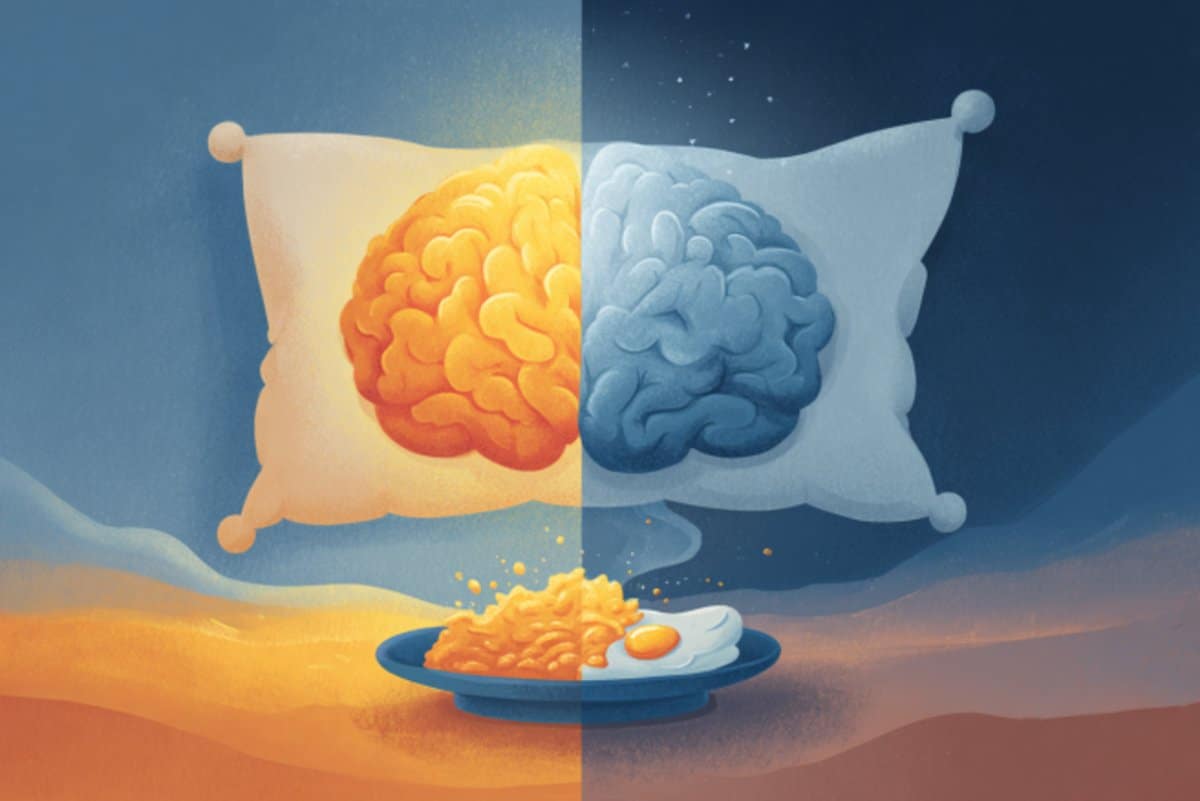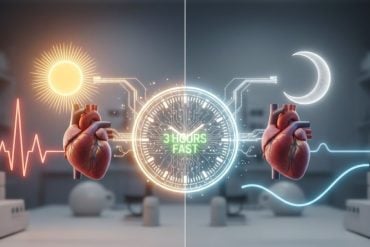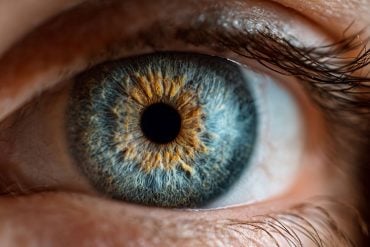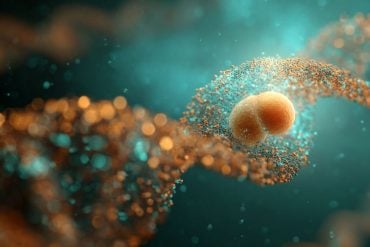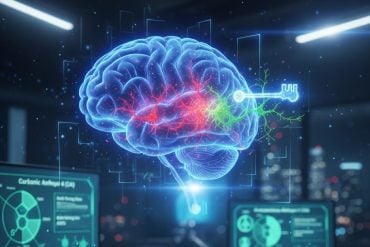Summary: New research using fruit flies reveals that sleep loss can trigger both increased eating and sleeping—if the deprivation leads to energy depletion. Flies that lost energy while sleep-deprived compensated with extra rest and food intake, while those deprived without losing energy showed no such rebound.
The findings suggest that energy balance, not just lost hours of sleep, drives the body’s recovery behaviors. This link between energy, sleep, and appetite may help explain why disrupted sleep patterns often coincide with overeating and metabolic challenges.
Key Facts
- Energy Connection: Sleep deprivation that depletes energy triggers both increased feeding and sleep recovery.
- Behavioral Insight: Restoring energy balance—not just missed sleep—drives compensatory behavior.
- Clinical Implication: Treating sleep and eating issues together may improve outcomes for metabolic disorders.
Source: SfN
Sleep patterns and eating habits can influence each other, but the link between these behaviors remains unclear.
In a new Journal of Neuroscience paper, researchers led by William Ja, from the Herbert Wertheim UF Scripps Institute for Biomedical Innovation and Technology, used fruit flies (Drosophila) to explore how different kinds of sleep deprivation influence subsequent sleeping and feeding behavior.
The researchers tested different sleep loss conditions and discovered that when fruit flies are sleep deprived to the point of energy loss, they compensate by feeding and sleeping more to restore their energy.
When the flies experience sleep deprivation that doesn’t deprive them of energy, they do not eat or sleep more.
According to the authors, this work shows that energy deprivation from lack of sleep is linked to an urge to consume and sleep more later.
Says Ja, “I think our work adds credence to using less-intrusive, behavioral sleep interventions for alleviating eating and metabolic disorders. It is possible that by correcting sleep habits, cravings and eating habits will be easier to change.
“Our work also suggests that it might be hard to treat sleep or metabolic disorders in isolation—we may need to correct multiple behaviors, including sleep and eating habits, for successful therapeutic interventions.”
Key Questions Answered:
A: Fruit flies compensate by both eating and sleeping more to restore balance.
A: No—only energy-depleting sleep loss triggered increased feeding; non-energy-draining deprivation did not.
A: It suggests that fixing sleep habits could make improving diet and metabolism easier, as both are biologically linked.
About this sleep and hunger research news
Author: SfN Media
Source: SfN
Contact: SfN Media – SfN
Image: The image is credited to Neuroscience News
Original Research: Closed access.
“Energy Deficit is a Key Driver of Sleep Homeostasis” by William Ja et al. Journal of Neuroscience
Abstract
Energy Deficit is a Key Driver of Sleep Homeostasis
Sleep and feeding—typically mutually exclusive behaviors that are vital for survival and health—are intricately linked. Across species, chronic sleep loss or deprivation is associated with increased caloric intake; while fasting typically induces sleep suppression.
Despite evidence for a dynamic relationship between these behaviors, how sleep affects eating habits, and how changes in feeding behavior and nutrition alter sleep, are not completely understood.
Distinct neuronal manipulations in Drosophila melanogaster can dissociate sleep loss from subsequent homeostatic rebound, offering an optimal platform to examine the precise interplay between these fundamental behaviors.
Here, we investigated concomitant changes in sleep and food intake in individual flies, as well as respiratory metabolic expenditure, that accompany behavioral and neuronal manipulations that induce sleep loss in males.
We find that sleep disruptions resulting in energy deficit through increased metabolic expenditure and manifested as increased food intake were consistently followed by rebound sleep. In contrast, sleep loss that does not induce rebound sleep was not accompanied by increased metabolism and food intake.
Our results suggest that homeostatic sleep rebound is linked to energy deficit accrued during sleep loss. Collectively, these findings support the notion that sleep functions to conserve energy and highlight the need to examine the effects of metabolic therapeutics on sleep.
Our findings also stress the importance of precise measurements of sleep and the value of considering multiple indicators of energy balance, including metabolism and food intake.


